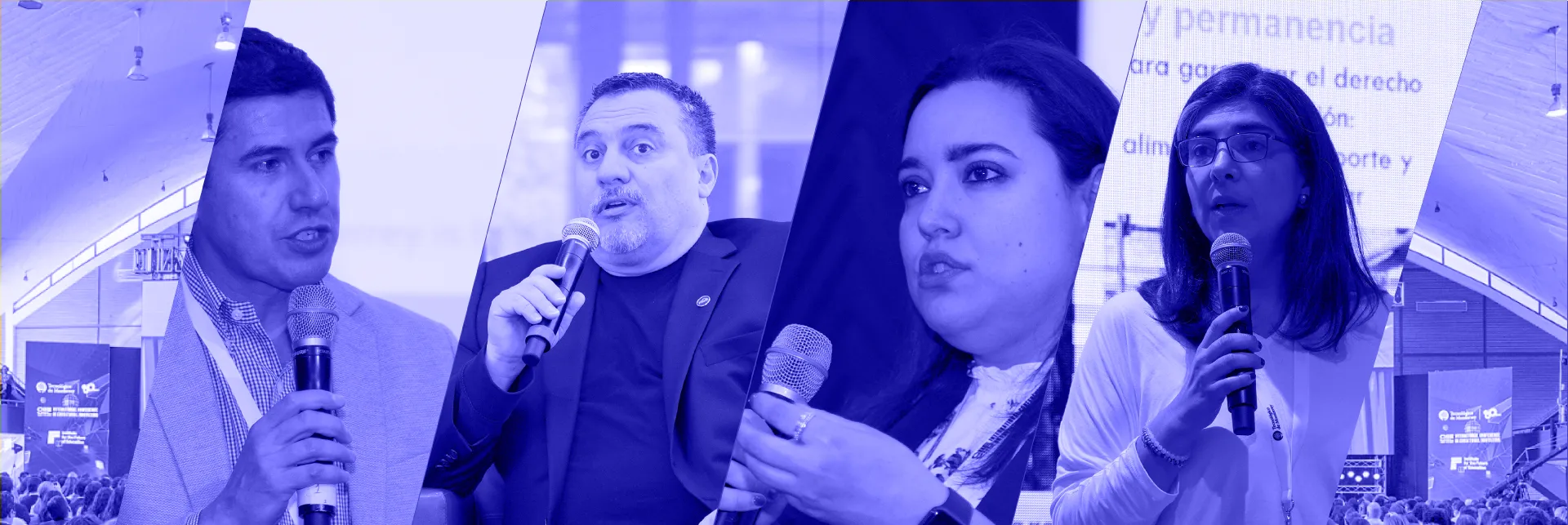Editorial & Academic Evaluation

Editorial Evaluation
The editors assess compliance with the following aspects:
- Relevance to the thematic lines of the IFE Conference
- Compliance with the Submission Policies: presentation, structure, bibliographic style, and ethical considerations.
Academic Review Process
IFE Conference employs a single-blind peer review process for the certification of scientific contributions, where authors are unaware of the reviewers’ identities, but reviewers are aware of the authors. The academic review process adheres to scientific parity and academic degree parity. Decisions from the academic review process are communicated to the corresponding author by one of the editors of the IFE Conference.
Aspects Evaluated
The academic reviewers evaluate the following aspects:
- Originality and novelty of the contribution
- Relevance and appropriate use of bibliographic references
- Coherence between the stated objectives, methodology, and results
- Concise and technical language within the disciplinary area of Educational Innovation
- Quality of writing and presentation of the structure
- Relevance of figures, tables, and equations
- Contribution of the discussion and conclusions of the contribution
As a result of this process, the decisions can be:
- Accepted without modifications
- Accepted with modifications: which can only be addressed by the authors in up to two rounds of academic review
- Rejected. The decision is final and cannot be appealed.
The single-blind peer review process will undergo a maximum of two rounds before the final acceptance of the contribution for publication.
Evaluation Time
The editorial review process begins upon receiving the contributions, which will be notified on July 30, 2024. Authors will have 30 days to make the indicated modifications and provide the required information as a result of the academic review process.
Failure to comply with the deadline or the suggested corrections by the editors or academic reviewers of the IFE Conference will result in the dismissal of the contribution. The editorial decision is final.
For more information on this year’s call dates, please refer to the Objectives and Important Dates section.
Selection of Reviewers
The academic reviewers who conduct the single-blind peer review process are selected based on academic and scientific parity. As a requirement and in accordance with the Code of Ethics, academic reviewers will not evaluate contributions that have at least one institutional affiliation matching that of the reviewer. The IFE Conference promotes the annual inclusion and openness of the international body of academic reviewers, ensuring plurality in contributing to the disciplinary field of Educational Innovation.
Ethics in Peer Review
The peer review process is the academic evaluation that certifies that a scientific research contributes to the progress of a disciplinary field, through a well-structured contribution that adheres to ethical best practices. Therefore, the IFE Conference acknowledges the responsibility of a scientific publication and its team to provide a space for scientific communication with rigor and academic integrity.
Ethics and Responsibilities of the Reviewer
- Evaluate the contribution based on the criteria determined by the scientific committee
- Provide critical judgments and scientific arguments that support the improvement of the contribution
- Avoid personal biases and refrain from suggesting bibliographic references that favor the reviewer
- Use appropriate and inclusive language
- Adhere to the IFE Conference’s Code of Ethics
- Notify the editors of any conflict of interest and report any plagiarism or scientific fraud detected in the contribution
- Meet the deadlines established by the IFE Conference
- Do not share, appropriate, or use the data or content of the reviewed contribution
Ethics and Responsibilities of the Author
- Adhere to the IFE Conference’s Code of Ethics, as well as the statements in the Letter of Originality, Conflict of Interest, and Assignment of Intellectual Property Rights.
- Ensure that the contribution complies with the submission policies and types of contributions
- Make the suggested modifications within the specified time frame.
Ethics and Responsibilities of the Editor
- Adhere to the IFE Conference’s Code of Ethics
- Ensure that the body of reviewers meets the criteria of academic and scientific parity, as well as the IFE Conference’s Code of Ethics.
- Manage conflicts of interest
- Ensure that the peer review process is carried out in a timely manner and with the required rigor
- Maintain the anonymity of reviewers to authors
- Safeguard the versions and revisions of the contributions received by the IFE Conference
- Facilitate communication between authors and reviewers
- Promote international openness and academic integrity within the body of reviewers and the research community.




